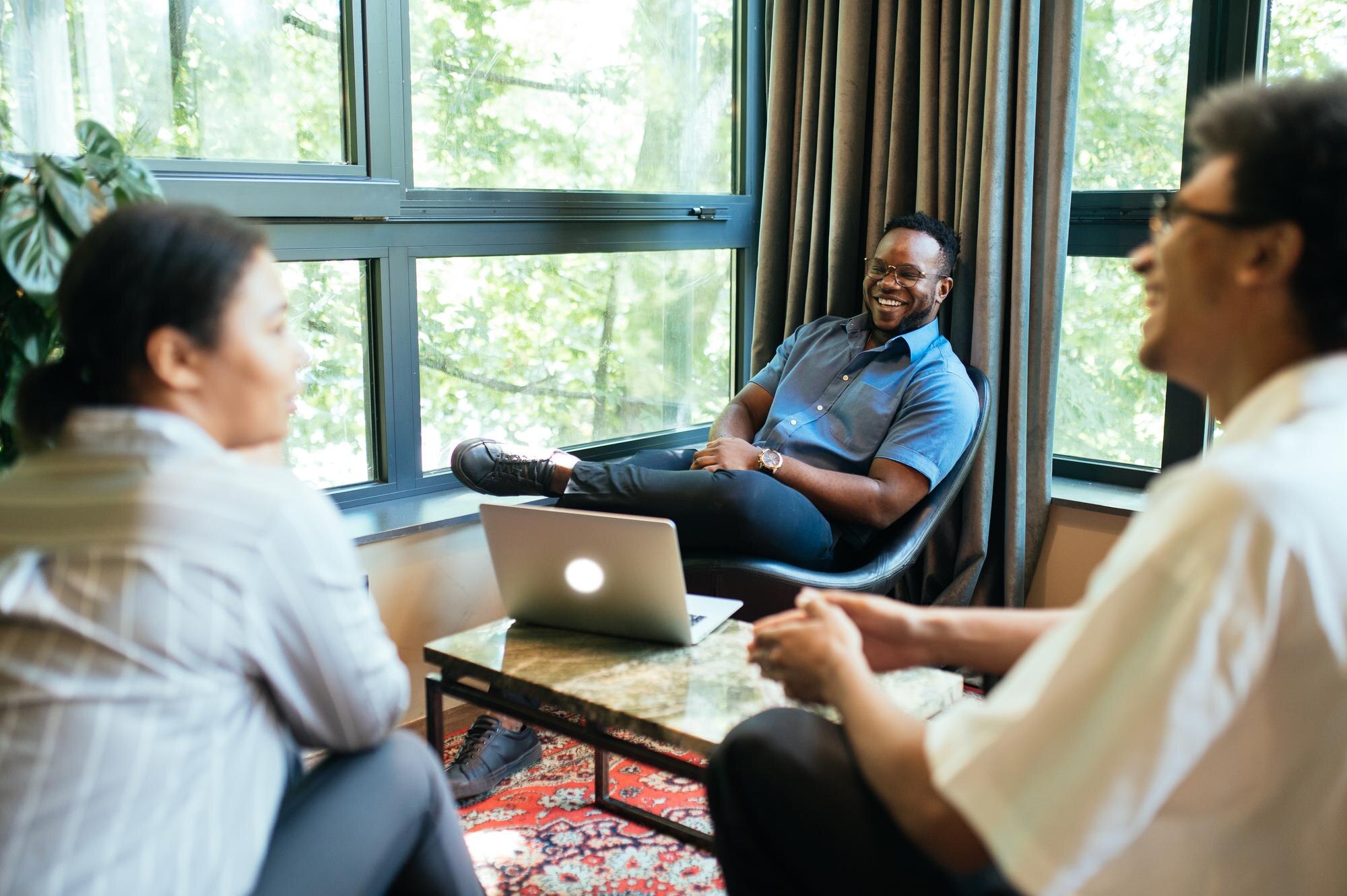
Why Non-Clinical Coaching Can Be More Effective Than Therapy for Addiction Recovery
Forget what you know about addiction recovery. Therapy may not be the only path to healing. Non-clinical coaching offers a fresh approach that empowers you to break free from compulsions without labels or judgment. Imagine a space where your pain is met with understanding, not diagnosis. VK Circle’s unique methods focus on emotional liberation and self-worth, providing tools that transform your life. Ready to reclaim your power? Explore how non-clinical coaching can lead you to true emotional freedom.## Benefits of Non-Clinical Coaching

Non-clinical coaching offers a distinct path for those seeking freedom from addiction. It centers on emotional liberation and self-worth, providing tailored support without the stigma of clinical labels.
Emotional Liberation Techniques
Emotional liberation is the process of freeing oneself from emotional burdens that fuel addictive behaviors. In non-clinical coaching, this involves recognizing and releasing these emotions. Techniques may include mindfulness practices, reflective journaling, and guided visualization. These methods help individuals confront their inner pain without judgment, fostering a sense of peace and self-acceptance.
According to a study on peer recovery support, emotional support is crucial for sustainable recovery. By focusing on emotional liberation, non-clinical coaching empowers individuals to identify and change their emotional patterns.
Real-world examples show that individuals who engage in these practices often experience reduced anxiety and increased resilience. This approach offers a safe space to explore and transform emotions, paving the way for lasting change.
Building Self-Worth Without Judgment
Building self-worth is integral to breaking free from addiction. Non-clinical coaching promotes this by encouraging self-reflection and personal growth in a non-judgmental setting. Unlike traditional therapy, it avoids diagnostic labels, focusing instead on the individual’s strengths and potential.
Self-worth grows through supportive environments and understanding. Coaches guide clients to recognize their intrinsic value, fostering a positive self-image. This recognition helps dismantle the cycle of self-criticism that often accompanies addiction.
Actionable advice includes:
Celebrate small victories daily.
Set realistic, personal goals.
Practice self-compassion regularly.
By shifting focus to self-worth, individuals can rebuild their identities apart from addiction, creating a foundation for a healthier future.
VK Circle’s Unique Approach

VK Circle differentiates itself with a unique approach that combines the Heal Your Life® methodology and adventure-based coaching tools. This blend provides a comprehensive framework for emotional and personal growth.
Heal Your Life® Methodology Explained
The Heal Your Life® methodology is a cornerstone of VK Circle’s approach. It emphasizes self-love and empowerment, guiding individuals through their recovery journey with compassion and understanding. This method encourages clients to explore their beliefs and thoughts, identifying those that hinder their progress.
Based on the work of Louise Hay, this approach helps clients replace negative self-talk with positive affirmations. It empowers individuals to take control of their emotional and mental wellbeing, fostering a deep sense of self-awareness and acceptance.
Key insights:
Encourages positive thinking.
Promotes emotional healing.
Focuses on self-acceptance.
By adopting the Heal Your Life® methodology, VK Circle provides a nurturing environment for clients to heal and grow.
Adventure-Based Coaching Tools
Adventure-based coaching tools are a distinctive feature of VK Circle’s approach. These tools involve activities that challenge clients physically and mentally, encouraging them to step out of their comfort zones. This experiential learning fosters resilience and adaptability.
Examples of activities include:
Outdoor adventures like hiking or rock climbing.
Team-building exercises.
Creative workshops.
These activities promote self-discovery and personal growth. They offer a dynamic, engaging way to learn about oneself, encouraging clients to embrace change and overcome obstacles in their recovery journey.
Alternatives to Traditional Therapy

For those seeking alternatives to traditional therapy, non-clinical coaching offers practical solutions that address compulsive behaviors and provide empowering tools for lasting change.
Addressing Compulsive Behaviors
Compulsive behaviors often arise from unmet emotional needs. Non-clinical coaching addresses these by exploring the root causes of such behaviors. Unlike therapy, which often focuses on diagnosis, coaching emphasizes understanding and personal growth.
According to peer coaching studies, addressing the emotional roots of compulsions is crucial for recovery. Coaches guide clients in identifying triggers and developing healthier coping mechanisms.
Recommendations:
Explore emotional triggers.
Develop mindfulness practices.
Create a support network.
This proactive approach helps individuals gain control over their compulsions, fostering a healthier lifestyle.
Empowering Tools for Lasting Change
The goal of non-clinical coaching is to provide clients with tools that empower them to create lasting change. These tools include strategies for self-awareness, emotional regulation, and personal accountability.
Empowerment in recovery involves:
Cultivating self-awareness.
Practicing emotional regulation.
Setting and achieving personal goals.
By focusing on empowerment, non-clinical coaching offers a sustainable path to recovery. This approach provides individuals with the skills and confidence needed to navigate their recovery journey successfully.
For more insights, explore the role of recovery coaches here and here. ✨



